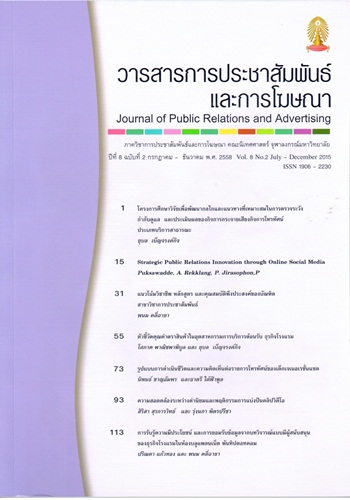โครงการศึกษาวิจัยเพื่อพัฒนากลไกและแนวทางที่เหมาะสมในการตรวจระวัง กำกับดูแล และประเมินผล ของกิจการกระจายเสียงกิจการโทรทัศน์ประเภทบริการสาธารณะ
Main Article Content
Abstract
The regulatory and evaluation framework for public service operators in Thailand have been under strong disputes among sectors involved for quite sometime. The National Broadcasting and Telecommunication Commissioners (NBTC), a convergent regulator of telecommunication and broadcasting services has been under pressure on how to regulate broadcasting operators whom the concession system makes it natural for them to be violated on their media right in certain circumstances. This study aims at proposing the appropriate and acceptable regulatory and evaluation framework for public service operators in Thailand. Data were collected from documentaries about regulation and evaluation system implemented in the UK, USA, Australia and Japan, and in-depth interviews of involved groups namely: regulators, operators, producers, professional organizations, consumers and academics in communication fields.
Findings show that regulatory framework should include legal framework, functional framework, such as quality of production and content, and professional ethical framework. The NBTC should indirectly exercise regulatory power through media professional organizations which can take complaints and monitoring into consideration as well as sending the case with further suggestions to NBTC. Information regarding misconduct can be collected through variety of channels such as monitoring units, audiences, directly or through media watch groups, and the professional organizations as well as NBTC should also act as watch dogs on this matter. Professional organizations will act as a center on this co-regulation practice. As for evaluation process, it can be done from within the service operator itself, or from outsiders. Service operators should make it more reliable and trustworthy by collecting feedback from different sources of information especially from those who can maintain impartial in the evaluation process.


